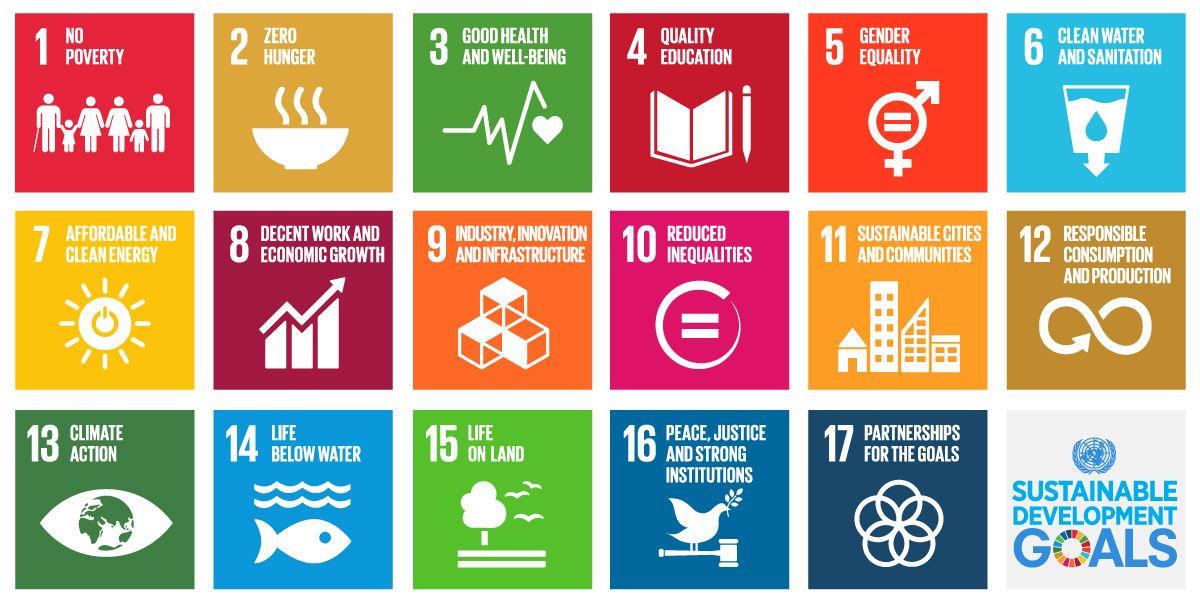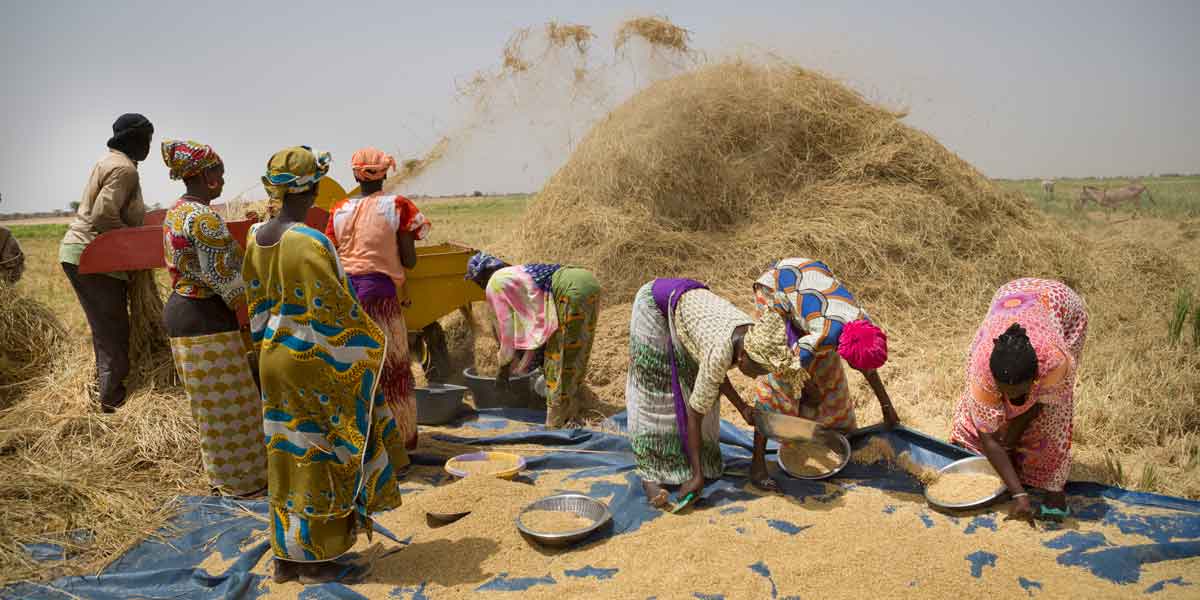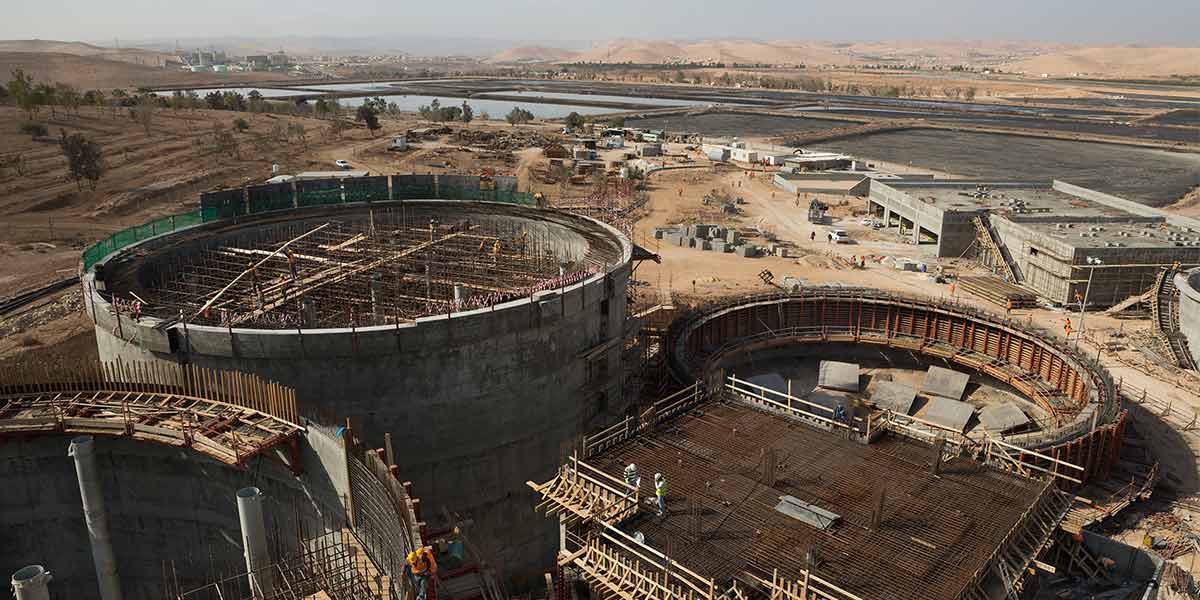
United Nations
MCC’s work to transform lives and create opportunity for people around the world helps drive international efforts to achieve the 17 interconnected SDGs.
The SDGs represent the culmination of years of collaborative input from countries and organizations around the world, including MCC, on ambitious goals for sustainable global development to be achieved by 2030, including:
- Ending poverty and improving lives globally
- Focusing on inclusive economic growth
- Creating effective, accountable institutions to sustain and accelerate development progress
- Demanding more and better use of data to achieve and measure the SDGs
Inclusive Economic Growth

Jake Lyell for MCC
Senegalese women of the Namodiral women's group in Podor Department, northern Senegal, winnow rice in the new irrigated Ngalenka perimeter. The women received land titles for the first time under MCC’s Senegal Compact.
When designing projects with partner countries, MCC works to promote economic growth that helps people lift themselves out of poverty. MCC works collaboratively with its partners to identify the constraints to growth that present the biggest obstacles to economic progress and private investment. And before moving forward, MCC economists and experts analyze potential projects to determine how they will impact the poorest populations, including women, the elderly, children, and regional and ethnic sub-populations.
Leveraging the Private Sector

Jake Lyell for MCC
In Jordan, MCC supported the expansion of the As-Samra Wastewater Treatment Plant with a public-private partnership. With MCC’s $93 million investment, the agency helped mobilize an additional $110 million in private financing. The project is expected to benefit more than three million people.
MCC works to eliminate obstacles and reduce risks in our partner countries to encourage business investment, accelerate economic growth and alleviate poverty. In Benin, Ghana and Jordan, MCC’s $1.1 billion in investments are expected to catalyze nearly $5 billion in private funding. MCC has also committed $70 million in grants—$52 million in Africa alone—to support public-private partnerships in our compacts. This commitment is expected to generate $1 billion in private-sector investments over five years.
Mobilizing Domestic Resources

MCA-Philippines
Improving the collection and auditing of taxes is helping to reduce opportunities for corruption in the Philippines and narrow the gap between potential and actual tax collections, which means more government funds are available to support the Filipino people.
Open and Transparent Data
MCC is committed to the principles behind open data. By putting more and better data into the hands of the development community, MCC opens the door for others to create new and innovative ways to use our data to further development efforts. To this end, MCC has joined other organizations and initiatives that complement our own open data efforts.The Global Partnership for Sustainable Development Data was launched on the sidelines of the 70th United Nations General Assembly and is mobilizing a range of data producers and users—including governments, companies, civil society, data scientists and international organizations—to harness the data revolution to achieve and measure the SDGs. Working together, the U.S. and other Global Data Partnership contributors are addressing barriers that prevent greater access and use of development data.
MCC’s partnership with the President’s Emergency Plan for AIDS Relief (PEPFAR) is helping to strengthen the availability and use of data in sub-Saharan Africa to support programs and policies that address HIV/AIDS, global health, gender equality, and economic growth. And as part of Data2x—a partnership with the United Nations Foundation to advance gender equality—MCC and other donors are improving the quality, availability, and use of gender data to make a practical difference in the lives of women and girls worldwide. Both partnership programs align with the Global Data Partnership’s efforts to promote data collaboration to achieve the SDGs.

